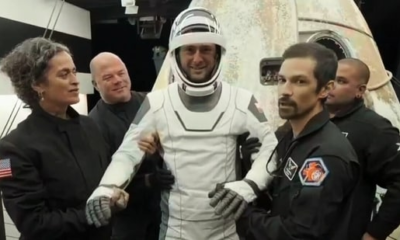Mark Carney’s Victory Signals Reset in India-Canada Relations
Mark Carney’s return to the forefront of Canadian politics as Prime Minister marks a dramatic shift in the country’s domestic and foreign policy landscape—and India is watching closely. After a turbulent chapter under Justin Trudeau, where diplomatic ties between Ottawa and New Delhi reached historic lows, Carney’s leadership is being seen as an opportunity to turn the page.
In the lead-up to the election, Carney made strategic overtures toward India, including joining the Hindu community to celebrate Ram Navami—a gesture that many viewed as a symbolic olive branch. Though politically timed, the move reflected Carney’s stated desire to rebuild strained diplomatic bridges.
Speaking just a day before the election, Carney described the Canada-India relationship as “incredibly important on many levels—personal, economic, and strategic.” These comments underscored his approach to foreign policy: pragmatic, trade-focused, and less ideologically driven than his predecessor’s.
A Diplomatic Thaw in the Making
Carney’s signals toward India suggest a conscious attempt to move past the political baggage of Trudeau’s era. Notably, Carney has avoided directly referencing the 2023 killing of Khalistani separatist Hardeep Singh Nijjar, the flashpoint that sent bilateral ties into a tailspin. Instead, he has emphasized “mutual respect” and expressed hope that the “strains on the relationship” could be resolved constructively.
The diplomatic freeze following Trudeau’s accusation of Indian involvement in Nijjar’s killing saw both nations expelling diplomats and India suspending visas for Canadian citizens. The impact was swift and damaging—not only for governmental dialogue but also for people-to-people ties.
With Carney now in power, Indian officials are reportedly considering restoring the Indian High Commissioner to Canada, signaling that dialogue could soon resume at the highest levels.
Strategic Realignment Amid Global Uncertainty
Carney’s victory comes at a time when Canada is navigating uncertain geopolitical waters, especially with Donald Trump’s resurgence in the U.S. Carney, an economist and former governor of the Bank of Canada and Bank of England, has made it clear that his priority will be economic stability and diversification.
Facing the threat of U.S. tariffs and protectionist policies, Carney has acknowledged the need to seek “new friends and allies” to buffer Canada’s economic future. “There are opportunities to rebuild the relationship with India,” he said in March, pointing to India’s growing global clout and economic heft.
Breaking with Trudeau’s Legacy
Under Trudeau, Canada’s policy towards India was seen as being disproportionately influenced by pro-Khalistan elements within the country, particularly through his alliance with Jagmeet Singh’s National Democratic Party (NDP). The political dependence on the NDP was a key factor in Trudeau’s handling of sensitive issues related to India.
With Jagmeet Singh losing his seat and stepping down as NDP leader, a major political constraint on Indo-Canadian relations has now been removed. The expectation in New Delhi is that Carney will adopt a more balanced approach, free from domestic political pressures tied to extremist elements.
Carney, who lacks Trudeau’s ideological baggage and has a strong economic focus, may be better positioned to pursue a pragmatic engagement with India, prioritizing trade, investment, and people-to-people ties.
Trade and People-to-People Ties: Room for Growth
Despite the recent diplomatic freeze, India and Canada remain deeply connected. There are over 1.8 million Indo-Canadians and nearly one million NRIs living in Canada, making up more than 3% of the population. Additionally, around 427,000 Indian students are currently enrolled in Canadian institutions, making India the largest source of foreign students in the country.
Bilateral trade between the two nations stood at CAD 13.49 billion (approx. ₹83 crore) in 2023. However, the stalled Comprehensive Economic Partnership Agreement (CEPA) has been a major roadblock to realizing the full potential of economic ties. With Carney now signaling a change in tone, the resumption of CEPA talks could be on the horizon.
Prime Minister Narendra Modi’s congratulatory message to Carney is being interpreted as a gesture of goodwill and readiness to reset the relationship. “India and Canada are bound by shared democratic values and vibrant people-to-people ties. I look forward to working with you to strengthen our partnership and unlock greater opportunities for our people,” Modi tweeted.
Looking Ahead
While challenges remain, Mark Carney’s ascent offers a window of opportunity for both countries. A shift from Trudeau’s confrontational stance to Carney’s pragmatic diplomacy may usher in a new era of cooperation—one rooted in mutual respect, economic interest, and strategic alignment.
IT




























